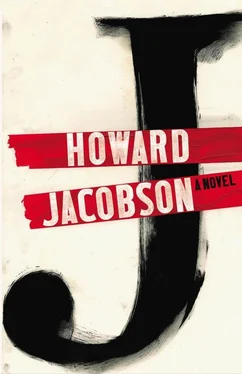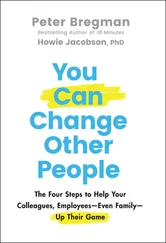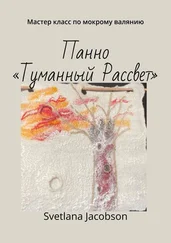‘A link in what chain?’ he asked.
She laughed, reminding herself suddenly of her mother. ‘The defilement chain.’
‘I don’t know what that means.’
‘Do you feel that the part you play in killing animals — I know you don’t actually kill them — I take your point about undertakers and tanners — but do you feel that there’s blood on your hands and that people treat you differently because of it?’
He wondered if that was the longest question he’d ever been asked. He flicked away an ant that was crawling up her leg. ‘Why would people treat me differently?’
She remembered the Untouchables of India, photographs of whom her mother found in magazines and pasted into her crazy person’s history. Their lowly status, according to her mother, had many explanations but none so telling as their original association with blood. They were their society’s ritual murderers, and as such considered unclean. The Burakumin of Japan — information about whom her mother had also collected — the same. Butchers, undertakers, slaughtermen, spillers of blood, killers of gods. And the taboo against touching them could never be broken. They had death on them, and whoever had death on him was outcast. Illogical, because someone had to deal with the dead, the tasks they performed were indispensable and even sacred, but logic had nothing to do with defilement.
‘Because they can’t forgive the blood,’ Sibella said.
Madron shook his head. ‘Well that’s what you say, but they forgive mine fine enough.’
She shrugged but returned to the subject often. It almost became their love talk. Death, defilement, ritual murderers, sacred executioners.
‘Put another record on, girl,’ he would say to her.
And she would try. Sometimes, lying with her head against his chest, listening to the hungry screeching of the seagulls, looking up at the undersides of their ugly, torpedo bodies, she would almost succeed.
But she was never free of the sensation that she disgusted him. Which was strange because it was he — a man who dabbled in blood for a living — who was supposed to disgust her.
She loved him, after a fashion, nonetheless. And missed him more intensely than she thought she would when he died, more intensely even than she missed her parents. Was that, she wondered, because in their agitated distance from her they had been half dead already. She could barely remember her mother’s disappearance. As for how her father died, she realised with shame that she didn’t know. Howel told her it had happened. That she did remember. ‘I’ll be looking after you now,’ he said.
Poor Madron had a heart attack, that was all. One of those quiet ones in the bath. She hoped she hadn’t been instrumental in bringing it on. Not by making love, which between them had never been strenuous, but by making him feel dirty. Had she talked his heart into stopping?
She would have liked to kiss his perplexed brow one more time but she understood she couldn’t see him. She suffered the terrible fate of all mistresses of married men in that she didn’t dare show her face at his funeral.
‘Don’t show your face.’ Where had she heard that before?
It was on the seventh anniversary of his death — almost certainly not coincidentally — that she set fire to her fingers.
i
‘WE SHOULD NEVER have gone away,’ Kevern said to Ailinn when they were inside.
She felt he was blaming her, though the trip had been his idea.
‘Can you tell yet if anything’s been taken?’ she asked.
‘It’s not what’s been taken. I have nothing it would be worth anyone’s while to take. It’s what’s been seen that concerns me.’
He stood at the window, not wanting to look around, grinding his fists into his eyes.
‘Your feet,’ Ailinn said. ‘I’ve only just noticed.’
‘What?’
‘They’re too big.’
He stared at her.
‘I’m trying to cheer you up with a joke,’ she said.
She stood forlorn in the middle of the little sitting room, not knowing where to put herself, how to help, what to say. When Kevern was at a loss he joked, so she thought she should try the same. But the only effect of her joke was to remind him of something and send him flying up the stairs. She heard him banging about, like a wild animal trapped in someone’s loft. After ten minutes he came back down, looking ashen. ‘Have they been up there?’ she asked.
‘ They ?’
‘Anyone?’
He fell into an armchair and shrugged. ‘Must have been. Everything’s too neat.’
‘So nothing’s gone?’
‘Hard to say. My father’s records are still there. And I think all his books. That’s something. If they wanted to get me on an heirloom charge they’d have taken those. But who knows what they’ve read, or listened to, or photographed?’
She couldn’t help herself. ‘ They ?’
‘I think you should go,’ he said.
She went over to him and kissed the top of his head. ‘I can’t leave you alone in this state,’ she said.
‘I don’t know what you mean by “this state”. I am how I always am.’
‘Then I can’t leave you in that state. Come on — discuss it with me. What do you think’s happened?’
He sat forward and dropped his head between his knees. ‘Ahab’s been,’ he said.
One detail he didn’t mention: whoever had tidied up his runner had been for a lie-down in his bed.
ii
She didn’t want to leave him in any state but she had no choice. ‘I need to sleep this one out alone,’ he said.
She offered to take the couch but he begged her to go. ‘Just for tonight,’ he said. ‘This is my doing. I was the one who kissed Lowenna Morgenstern.’
‘One of the many.’
‘You know what I mean.’
‘You think this is about her?’
‘No. But it’s still my fault.’
‘You aren’t going to do anything silly,’ she said.
‘Like what? Leave the country?’
She kissed his non-responding lips, noticing for the first time that there were dry serrations in them and that his breath was sour, then she walked back slowly, heavily, through the village to Paradise Valley. I feel a hundred, she thought. A drunken man called out to her. ‘I want to bite you,’ he said. She laughed. I’m a hundred and he wants to bite me. ‘You’ll break your teeth,’ she dared to call back. But he was too unsteady to take her up on the challenge. A couple snogged violently against a dry-stone wall. Making the beast. A good description of them. A thing of scales and claws. Prehistoric. Kevern and Lowenna, she thought. But she agreed with his assessment that this — supposing he had not imagined it all — was not about Lowenna. As she pushed open the first of the field gates to the Valley a cat ran across her feet. A bad omen according to her adoptive mother. When a cat ran across your feet someone was going on a long journey. And why was that bad? Because you would never see them again.
Her heart fluttered.
Did Kevern’s bitter gibe about leaving the country mean anything? Did any of his gibes mean anything? For their own good, people were discouraged from leaving the country — assuming they had any notion of what or where any other country was — but there was always a way if you were desperate, particularly if you lived by the sea and had the money to persuade one of the local fishermen to smuggle you out. You’d never be heard of again. In all likelihood the fisherman would throw you overboard once you were out of sight of the mainland. But at least you’d achieved what you wanted and got away. Why, though, would Kevern want that? He’d told her he loved her. He’d told her he’d never been — and had never in his life expected to be — so happy. So why? And if he wasn’t running from the police, who was he running from? Ahab, he’d said. Ahab! Ahab was hers. She felt possessive of him, and angry with Kevern. Before he met her, he had not been troubled by any Ahab. Lampoons, yes. Harpoons, no. What was he doing purloining her terror?
Читать дальше












